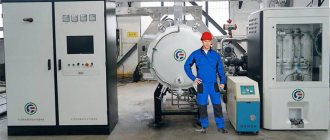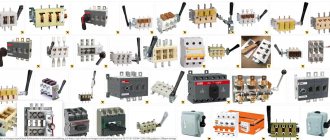Historical reference
The profession of a repairman appeared when people began to manufacture and use complex mechanisms, the maintenance of which required special skills and knowledge. These craftsmen assembled the device, set it up, provided technical support and repaired it. Written documents in which locksmiths were first mentioned were discovered in the Vienna archives and date back to 1463.
The first workshop where Schlosser lockmakers (from German: Schlosser) worked was formed in 1545 in Germany.
Its members' job was to "reanimate" broken door locks.
Places of work
A mechanic is a very popular profession in every production or construction site where there is a need to service various technological equipment. Depending on the chosen specialization, a mechanic can easily find a job in a factory, in various repair shops and other areas where there is production and technological installations.
Did you know?
The first locksmith workshops appeared in Germany at the end of the 14th century. The duties of the Schlossers (that's what the workers were called) included repairing door locks .
Description of the profession
Let's dwell on what a locksmith does and what is special about his work. Most often he deals with metal, although some craftsmen are skilled in wood, plastic and other materials. In his work (hand-making, assembling and repairing various types of products), a mechanic uses mainly simple tools (hammer, screwdriver, chisel, hacksaw, pliers); complex machines are not used.
With the development of new technologies, the profession of a repairman has become multidisciplinary. Now craftsmen who understand motor vehicles, industrial equipment (mining, chemical, engineering), and plumbing systems are separate specialists.
Almost every enterprise has its own service, which provides various types of repair work:
- current, in which a failed part is quickly replaced;
- planned preventative, when the operability of all components and assemblies is checked at a certain frequency, they are adjusted and adjusted to the desired condition;
- capital, during which broken or worn-out main mechanical systems are replaced for maximum performance and reliability.
The work of a mechanic is to detect all faults, quickly and correctly eliminate them, restore worn elements, protect them from corrosion, adjust and grind them together. The efficiency of an organization or enterprise largely depends on the speed and quality of repairs.
Description of the profession and some of its features
And we should start our consideration with the fact that a construction mechanic is a general-purpose mechanic. Very often he has to work with his hands, using significant physical effort. Therefore, if a person wants to really master it, then he must, at a minimum, be well developed physically and have strong, very strong hands.
In addition, this specialization is directly related to the desire to work with metal and various mechanisms. If a person has such a positive inclination, then he will definitely be able to master the profession of a construction mechanic. However, you need to remember that the tasks assigned to a construction mechanic can change daily. And it follows from this that the master will have to show considerable ingenuity and creativity, and even approach the work creatively.
Labor characteristics
In general, the work of a construction mechanic is complex and varied, but at the same time it is no less interesting, which is also very important.
If we talk about what work a construction mechanic will have to perform, then the list is as follows:
- Preparatory work for metalwork construction work.
- Manufacturing of components for performing plumbing work of varying degrees of complexity.
- Dismantling, repair and assembly of various construction equipment.
- Carrying out quality control and eliminating defects in plumbing construction work.
Of course, this list is very general and far from complete, but the general concept of work activity is extremely clear.
It should be noted that during the construction process there is often a need for the services of a construction mechanic. After all, modern construction involves a large number of machines with complex mechanisms. And any mechanism, as you know, tends to break down. Therefore, if it is necessary to carry out scheduled or emergency repairs, it will not be possible to do without a mechanic.
What is the job of a mechanic when a construction machine breaks down? In most cases, he will have to grind or urgently manufacture a part that has broken. In general, a construction mechanic has to do a lot of repairs. These include electric mixers, into which concrete and other solutions used in the construction process are loaded, as well as compressors, winches, and machines for working with reinforcement.
In addition to all this, the master has to bring paint and chalk grinders, jacks, drainage mechanisms, that is, pumps, pneumatic tools, as well as other construction mechanisms that are characterized by an increased degree of complexity, into proper condition. Agree that it is difficult to call this list short. However, large machines such as excavators, cranes, conveyors and bulldozers are also added to it. Yes! Their work, repairs and adjustments also fall within the scope of activity of a construction mechanic.
From all this we can conclude that a mechanic will never be bored at a construction site! After all, servicing and caring for construction equipment is not all that belongs to the responsibilities of a mechanic. Very often during the construction process, when concrete pouring work is required, metal formwork is used. Therefore, a construction mechanic must be able to do it, that is, install it, and, of course, dismantle the components of this structure when the concrete dries.
The best colleges for studying
You can study to become a mechanic at technical colleges across the country. A few example options:
Polytechnic College No. 8 named after. I. F. Pavlova. This is one of the leading educational institutions in Moscow, where they train specialists for all areas of activity in the metropolis. Graduates of grades 9 and 11 are accepted here; the course of study lasts 2 years 10 months and 43 weeks, respectively. Students master three profiles at once: toolmaker, repairman and mechanical assembly master.- Yekaterinburg Industrial and Technological College named after. V. M. Kurochkina. Locksmiths of all disciplines are trained here. Graduates are in demand at the Ural Electromechanical Plant, Uralmashzavod, Uraltransmash and other enterprises that are among the social partners of the college.
- Tyumen College of Construction Industry and Urban Economy. This educational institution trains masters of metalwork. There is also a branch in the village. Yarkovo, specializing in servicing vehicles and agricultural machinery. The Graduate Employment Center helps you find a job.
- Samara College of Production Equipment Service named after. E. V. Zolotukhina. Students of this secondary school master the skills of servicing mechanisms used in various industries. In this area, the college is considered specialized in the region, the best teachers are gathered here, and there is a good material base.
- Sormovo Mechanical College named after. P. A. Semenova (Nizhny Novgorod) provides plumbing skills in various specializations. Targeted training directed by the enterprise is actively used here.
After receiving a diploma, graduates can get a job or apply for admission to a university.
Locksmith training
You can undergo training to become a mechanic at a technical school or college . There are special short-term courses. Anyone can enroll on the basis of 9 or 11 grades. The duration of training lasts from 1 to 4 years , depending on the chosen institution and specialization.
Where to go to study:
- Polytechnic College named after Ovchinnikov . Faculty of Mechanical Engineering, specialty: Master of Metalwork.
- Polytechnic College No. 8 named after Pavlov . The locksmith profession can be obtained in the areas of “Fitter”, “Car repair and maintenance specialist”, “Installer of radio-electronic equipment and devices”.
- College of Water Resources . Directions “Maintenance and repair of ventilation and air conditioning systems”, “Management, operation and maintenance of an apartment building”.
- St. Petersburg College of Architecture and Civil Engineering . Department of Engineering Systems and Improvement.
- Academy of Urban Environment Management, Urban Planning and Printing . Department of "Architecture, building products and structures", specialty "Installation and operation of internal plumbing devices, air conditioning and ventilation."
- College of Metro Construction . Direction “Management, operation and maintenance of an apartment building”, specialty “Plumber”.
- Nevsky College named after Nebolsin . Direction "Installation and operation of internal plumbing devices, air conditioning and ventilation."
Responsibilities at work
Now about what a repairman does. Depending on the place of work, there may be nuances, but in general its functions include:
- metalworking of parts, repair and production of various tools and devices;
- disassembly and assembly of mechanisms and equipment components, their load testing and adjustment;
- maintenance of machines and units;
- Troubleshooting hydraulic, pneumatic and mechanical systems.
In general, the employer expects the candidate to have the following knowledge and skills:
understanding of the structure and operating principle of mechanisms to be repaired;- knowledge of materials science, basic physical and chemical laws;
- compliance with the technology of work production, testing and adjustment;
- ability to read diagrams and drawings.
Considering the nature of the work and the use of various traumatic devices and tools, it is important to follow the safety rules prescribed in the instructions.
Features of the profession
The art of locksmithing requires a combination of manual dexterity with professional knowledge and sound judgment. This is a common working profession, since we encounter various structures, machines and mechanisms every day, and they have replaced manual labor in modern industries. At the same time, the work of a mechanic, especially in enterprises, can sometimes be associated with some health risks, and therefore requires strict adherence to safety precautions. In general, the job responsibilities of a mechanic are as follows:
- Carrying out metalworking of spare parts of various mechanisms, tools and devices.
- Repair of mechanisms and structures.
- Assembly of mechanisms, structures, equipment, their adjustment, testing and commissioning.
- Assembly and disassembly of machine components and units, their repair and testing.
- Selection of methods for restoring parts and fixtures, participation in their production.
- Monitoring the installation and adjustment of mechanisms, industrial equipment, instruments and tools.
- Preparation of documentation for repair and installation work.
- Elimination of equipment deficiencies identified during its operation.
- Participation in planning and organizing the work of your department.
The possible answers to the question of what a locksmith is cover almost every area in which something might need to be repaired. There are specialists involved in the repair of electrical equipment, fabrication of metal structures, production and adjustment of industrial tools, and even highly specialized repair of household appliances (for example, refrigerators or washing machines).
Who is it suitable for?
Mostly men work as mechanics; the profession is too difficult for women. Personal qualities required for a good specialist:
- accuracy and excellent memory;
- responsibility and organization;
- resourcefulness and ingenuity;
- accuracy and attentiveness;
- developed eye;
- physical strength and endurance.
Pros of the profession: demand, good salary, possibility of additional income on the side. Disadvantages: difficult, dirty and often monotonous work, risk of injury and occupational diseases.
What does a repairman do?
It should be noted that a mechanic is a general name for a whole group of professions. And the clarification “repairman” only specifies it a little. It is clear that a repairman is a technical specialist. At the same time, he deals with a wide variety of equipment. For example, there are mechanics who specialize in auto repair, and there are those who specialize in a specific type of manufacturing equipment.
In general terms, a repairman should work with the following tasks:
- scheduled and emergency equipment repairs,
- preventive inspection and preventative repairs,
- analysis of equipment operation and search for reasons for its premature wear,
- development of methods that will slow down wear and prevent equipment failure,
- adjustment of machines and equipment.
Depending on how the work system at the enterprise is structured, the repairman either orders the necessary components himself or submits a request to the supply department. He also keeps primary records of spare parts, and sometimes consumables and tools.
Specific tasks depend on the qualification level of the specialist, with the first being considered the lowest, and the sixth the highest. Also, at an enterprise, a repairman may have some additional job responsibilities.
It is clear that such work requires a fairly deep knowledge of the operating principles of various equipment, the characteristics of its specific types, and safety precautions when working with certain machines and tools.
Those who have technical and analytical thinking and developed gross and fine motor skills can become a repairman. This specialist also requires good physical fitness and endurance, as well as normal vision. The necessary qualities for a repairman are responsibility, attentiveness, and even pedantry.
This work is strictly contraindicated for those who suffer from diseases of the musculoskeletal system. Much here depends on the specific industry in which the specialist works, but it is clear that people with allergies and people suffering from diseases of the respiratory system will not be able to work at most enterprises in the food or chemical industry.
Other professions: Surgeon salary
How to build a career
The professional growth of a repairman consists of a gradual increase in rank with a corresponding increase in income. It is impossible to make a serious career without additional education in this position.
Author: Alexey Kuznetsov
If you still have even the slightest doubt that the profession of a repairman is right for you, then we strongly recommend taking a career guidance test from Profgid . It costs mere pennies, and at the same time allows you to avoid mistakes that can go in the wrong direction and cripple your entire life. Find out more >>
Disadvantages of being a repairman
The disadvantages of the profession of a repairman are associated, first of all, with irregular working hours. After all, if there is a breakdown of the equipment on which the entire production process depends, then the mechanic has to work almost for days on end, forgetting about lunch breaks, weekends and the fact that working hours have long ended.
At the same time, the professional activity of a repairman almost always involves working in the dirt (in the literal sense of the word). That is why most of us invariably associate a representative of this profession with a person in dirty clothes, which are stained either with fuel oil, or machine oil, or sewage.
It must also be said that this profession requires special patience and attention, which not everyone has. Agree that without irritation, only those who sincerely love their work are capable of assembling and disassembling the same mechanism several times, trying to “get to the bottom” of the cause of the problem. In other words, the work of a repairman can be quite monotonous and monotonous, and therefore it is not suitable for impatient people.






